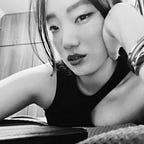After the Storm (2016) — Hirokazu Kore-eda
Kore-eda’s gives us a peek inside the soul of contemporary Japanese families.
This is the first of what I believe will be many posts in this blog about Hirokazu Kore-eda, one of the most distinguished Japanese filmmakers of actual days. He’s said to be “the new Yasujiro Ozu” of Japanese cinema, since they both focus on themes revolving on family. But actually Kore-eda only started centering on family dramas from 2004-on with “Nobody Knows”, and, besides, his stories carry a much, much heavier dramatic and social charge to them. No wonder he once said in an interview that, although people compare him with Ozu, he’s much more of a Mikio Naruse or even a Ken Loach’s variety.
Although often embedded with other Asian filmmakers such as Tsai Ming-lian and Hou Hsiao-hsien by Western critics, for the seemingly corresponding themes and aesthetics, Kore-eda is an auteur, which implies he has his very own characteristic style that detaches his work from all the others’. Soft but precise lightening (“Still Walking”); camera from below the actors (“Like Father, Like Son”); slow pace (“After Life”); the use of shadows and darkness (“Maborosi”); critics about the human condition in Japanese society (“Airdoll”). And “After the Storm”, the last of the “family” themed trilogy, has all of these elements well-put, even if the story might’ve not been as exciting as his previous works.
The film is submerged in the storm, the typhoon who is about to hit Tokyo at any day. Threatened by this scenario, it tells the story of Ryota (Hiroshi Abe), who is a man considered by his family, friends and society more of a bun than anything else. He’s divorced, broke, addicted to gambling, an immoral private detective and a once promising writer who is now a failure. Still, life goes on and all he really wants to do is to be with his son and to give him a baseball glove. It doesn’t matter how much criticism he receives, Ryota is Ryota and he is the only one able to interfere in the events of his life. Everyone seems to understands that. His mom and sister still love him. His ex-wife is still out of love with him. And his son will always love him. That’s what family is to Kore-eda: a state. Even if typhoons shake things up in a most intense and uncontrollable way, the storm is a passing event, whereas families are constant, with or without divorce.
If compared with the movie “Nobody Knows”, the first of Kore-eda’s “family trilogy”, “After the Storm” is a more mature understanding of family relationships. Much less of a critique, and more of an acknowledgement of the way these relationships tend to work. It focuses, above all, on the memories carried on by each individual about their families and relatives and the impacts these memories have on their lives. The problem with memory is that it is ultimately subjective. Ryota’s father thought Ryota hated him. But the main character thought it was the other way around. Memory keeps on playing tricks on us, especially when it has a vast and rich territory to dwell upon such as family. Kore-eda also points out the difference between men and women’s use of memory. While men tend to hold on to the past, women live by the present. Even if Japanese families have their respective particularities, they are ultimately human, so it is very difficult to watch the story without recognizing on the screen some aspect of our own backgrounds. A mother is a mother. A son is a son. Women and men are women and men.
